
Vitiligo Overview
Vitiligo is a skin disorder. It features with partial destruction of skin cells called melanocytes. Melanocytes are normally present in all surfaces of the skin and mucous membranes. However, in people who are suffering from vitiligo patches of skin are melanocyte-free and this way the color of patches is different comparing to the healthy skin. Patches can also affect mucous membranes and the retina. Even hair which grows on the affected area of the skin can sometimes be colorless i.e.depigmentated.
The actual cause of vitiligo has not been found yet. Apart from the presence of several theories, specific group of three genes has been related to susceptibility of some people to get the disease. Majority of doctors believe that vitiligo is actually an autoimmune medical condition. In some people the onset of skin changes is connected with sunbathing or emotional stress.
Vitiligo equally affects both genders. On the other hand dark-skinned people are more affected comparing to other races. It is found that vitiligo occurs in people who are already suffering from certain autoimmune diseases such as hyperthyroidism, alopecia areata, adrenocortical insufficiency and pernicious anemia. The condition can be also hereditary.
Complications of Vitiligo Treatment
If the skin patches are small and isolated there is no need for treatment. However, if large portions of skin are affected these patients require certain therapeutic approach.
The problem with vitiligo treatment is that it is not efficient in all patients. Accomplished improvement does not have to be permanent and there are cases of the disease recurrence. Skin changes on the face react better and longer on the therapy than patches on other parts of the skin.
One treatment modality is photochemotherapy in which a patient is treated with a combination of topic or oral Psoralen and ultraviolet rays. Potential complication of this therapy includes burns, itching and hyperpigmentation. Some patients are treated with corticosteroids. Complication of orally taken medications most commonly includes vomiting. Additionally, depending on the treatment modality a patient can develop abnormal growth of hair.
Some people may not bee satisfied with the treatment. People suffering from vitiligo already have issues with self-esteem and therapeutic failure can additionally reduce their confidence. In this case the doctor can recommend counseling and connect patients with support groups. Patients with large skin patches which significantly affect the appearance of the skin may even develop depression.
Even the very disease apart from the treatment can cause certain complications. For example, if depigmentation affects retina a patient can experience certain difficulties with vision. Even uveitis can occur. In rather rare cases vitiligo can cause hearing loss.


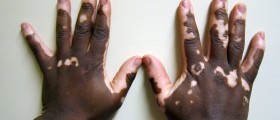
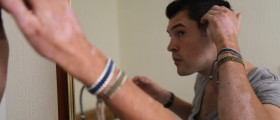
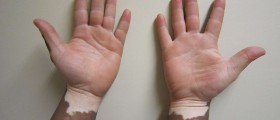

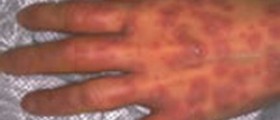

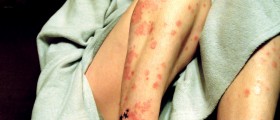



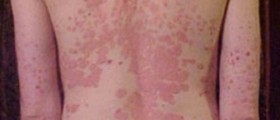
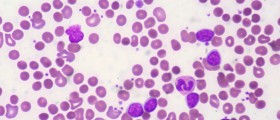


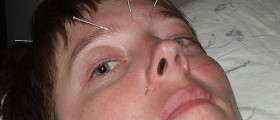
Your thoughts on this
Loading...